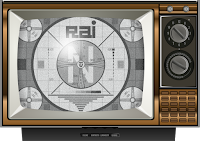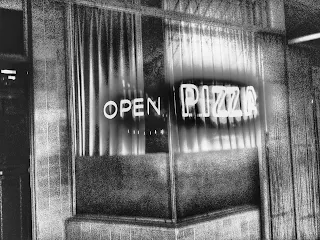From the top of your head
 |
| Jill Moon, 1952-2015 |
(Jill Moon, the woman I loved more than nearly anyone or anything
else, has passed away. This is a love poem I wrote for her back in
1996. It says it all and has nothing close to how deep our friendship
was and how deep the loss is and will remain. She was 63 years old, a
painter, a set designer, a college professor, a loving mother, a glass artist, a wit, a smart person who loved beautiful things and interesting people..
Jill Moon was a beautiful, brilliant, funny and passionate person who brought energy, humor,
and wit where ever she went in whatever she undertook. Her art in painting, set design, sculpture shared the qualities of innocence and play, mystery and just a hint of the ominous. Her canvases bristled with activity and color, small items and large that seemed to move about their terrain in some grand dance to keep this world balanced and ultimately serene. Jill was a loving person, gregarious, outgoing, a loving mother and a champion of the talent and virtues of her friends, a believer in social justice, and kindness toward others, someone who believed that harnessing the creativity in all of us makes the world a better place to live in. She was inspired to create and continued her art up to the end, adding glass art and doll making to her splendid body of work in painting, set design, and public sculpture. Being with Jill was one of the richest experiences of my life and her loss leaves a gap that cannot be easily filled, if at all. Jill was a beautifully singular human being. - See more at: http://www.legacy.com/guestbooks/sandiegouniontribune/jill-moon-deroos-condolences/175366955?cid=full&page=4#sthash.dSfay1v5.dpuf
and wit where ever she went in whatever she undertook. Her art in painting, set design, sculpture shared the qualities of innocence and play, mystery and just a hint of the ominous. Her canvases bristled with activity and color, small items and large that seemed to move about their terrain in some grand dance to keep this world balanced and ultimately serene. Jill was a loving person, gregarious, outgoing, a loving mother and a champion of the talent and virtues of her friends, a believer in social justice, and kindness toward others, someone who believed that harnessing the creativity in all of us makes the world a better place to live in. She was inspired to create and continued her art up to the end, adding glass art and doll making to her splendid body of work in painting, set design, and public sculpture. Being with Jill was one of the richest experiences of my life and her loss leaves a gap that cannot be easily filled, if at all. Jill was a beautifully singular human being. - See more at: http://www.legacy.com/guestbooks/sandiegouniontribune/jill-moon-deroos-condolences/175366955?cid=full&page=4#sthash.dSfay1v5.dpuf
Jill Moon was a beautiful, brilliant, funny and passionate person who brought energy, humor,
and wit where ever she went in whatever she undertook. Her art in painting, set design, sculpture shared the qualities of innocence and play, mystery and just a hint of the ominous. Her canvases bristled with activity and color, small items and large that seemed to move about their terrain in some grand dance to keep this world balanced and ultimately serene. Jill was a loving person, gregarious, outgoing, a loving mother and a champion of the talent and virtues of her friends, a believer in social justice, and kindness toward others, someone who believed that harnessing the creativity in all of us makes the world a better place to live in. She was inspired to create and continued her art up to the end, adding glass art and doll making to her splendid body of work in painting, set design, and public sculpture. Being with Jill was one of the richest experiences of my life and her loss leaves a gap that cannot be easily filled, if at all. Jill was a beautifully singular human being. - See more at: http://www.legacy.com/guestbooks/sandiegouniontribune/jill-moon-deroos-condolences/175366955?cid=full&page=4#sthash.dSfay1v5.dpuf
and wit where ever she went in whatever she undertook. Her art in painting, set design, sculpture shared the qualities of innocence and play, mystery and just a hint of the ominous. Her canvases bristled with activity and color, small items and large that seemed to move about their terrain in some grand dance to keep this world balanced and ultimately serene. Jill was a loving person, gregarious, outgoing, a loving mother and a champion of the talent and virtues of her friends, a believer in social justice, and kindness toward others, someone who believed that harnessing the creativity in all of us makes the world a better place to live in. She was inspired to create and continued her art up to the end, adding glass art and doll making to her splendid body of work in painting, set design, and public sculpture. Being with Jill was one of the richest experiences of my life and her loss leaves a gap that cannot be easily filled, if at all. Jill was a beautifully singular human being. - See more at: http://www.legacy.com/guestbooks/sandiegouniontribune/jill-moon-deroos-condolences/175366955?cid=full&page=4#sthash.dSfay1v5.dpuf
Jill Moon was a beautiful, brilliant, funny and passionate person who brought energy, humor,
and wit where ever she went in whatever she undertook. Her art in painting, set design, sculpture shared the qualities of innocence and play, mystery and just a hint of the ominous. Her canvases bristled with activity and color, small items and large that seemed to move about their terrain in some grand dance to keep this world balanced and ultimately serene. Jill was a loving person, gregarious, outgoing, a loving mother and a champion of the talent and virtues of her friends, a believer in social justice, and kindness toward others, someone who believed that harnessing the creativity in all of us makes the world a better place to live in. She was inspired to create and continued her art up to the end, adding glass art and doll making to her splendid body of work in painting, set design, and public sculpture. Being with Jill was one of the richest experiences of my life and her loss leaves a gap that cannot be easily filled, if at all. Jill was a beautifully singular human being. I will miss her terribly and will be forever grateful that she was part of my life. - See more at: http://www.legacy.com/guestbooks/sandiegouniontribune/jill-moon-deroos-condolences/175366955?cid=full&page=4#sthash.dSfay1v5.dpuf
I love you, dear Jill. --tb)and wit where ever she went in whatever she undertook. Her art in painting, set design, sculpture shared the qualities of innocence and play, mystery and just a hint of the ominous. Her canvases bristled with activity and color, small items and large that seemed to move about their terrain in some grand dance to keep this world balanced and ultimately serene. Jill was a loving person, gregarious, outgoing, a loving mother and a champion of the talent and virtues of her friends, a believer in social justice, and kindness toward others, someone who believed that harnessing the creativity in all of us makes the world a better place to live in. She was inspired to create and continued her art up to the end, adding glass art and doll making to her splendid body of work in painting, set design, and public sculpture. Being with Jill was one of the richest experiences of my life and her loss leaves a gap that cannot be easily filled, if at all. Jill was a beautifully singular human being. I will miss her terribly and will be forever grateful that she was part of my life. - See more at: http://www.legacy.com/guestbooks/sandiegouniontribune/jill-moon-deroos-condolences/175366955?cid=full&page=4#sthash.dSfay1v5.dpuf
From the top of your head
flowers grow that I’ve never seen
in the nature of my asking
the meaning of this thing, so beautiful, the wind.
The wind in all uses highlights
the shift of your hips
leaning against rocks, the meaning of this,
the earth, the mother of the deals
that have us eating out
of the hands that pick the roots of your hair
that goes on growing like flowers on hills
with all the houses we ‘ve never lived in.
A clap of thunder is applause enough for pausing
to smell the turpentine that revives the hem and haw
of the wood under our shoes,
rainy nights are ovations and the trance
of still looking into your eyes
where I’ve always seen them,
on pyramids, in circles,
thirsty yearning.
From my hands comes ruined meaning
about hammers and nails and the holes that made them,
I’ve stared at your face on the ceiling all night,
water flows where there is no resistance,
insistence makes me forget and remember your names,
every center has a heart
and every heart is broken.
Into your face t
all roads split down the middle,
the wind is a whisper
and a rustle of notes
coyotes cry
in the wake
of our progress,
so beautiful, the wind,
and water rolling
in circles, in circles, in peace.






